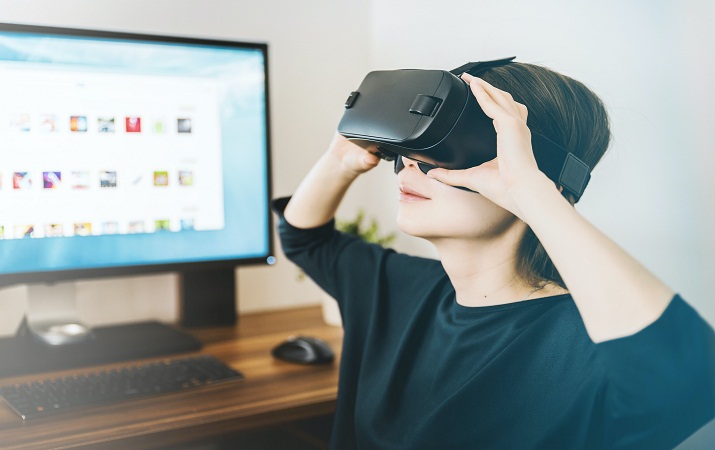Venture capital investors are now looking to deploy capital in startups that are building businesses around immersive technologies, after ploughing close to $1.7 billion this year in edtech alone.
Edtech investments in India made a fourfold jump in 2020 from $409 million in the previous year as the pandemic pushed users to online education, according to data from Venture Intelligence.
Experts believe immersive technologies, which replicate the physical world digitally, have a huge potential in edtech. By putting users in a virtual world or augmenting a virtual subject in the real world, technologies like augmented reality (AR) and virtual reality (VR) make learning more fun, engaging and lucid.
Events: Guest Blogging | uLektz Faculty Accomplishment | uLektz Wall of Fame
In the absence of access to actual science labs, as schools remain closed, VR and AR can come in handy for conducting practical classes. Products such as Jio Glass, a wearable, can be used to offer VR classroom experiences for specific subjects and study requirements.
“Online learning is no longer just a replacement or supplement to classroom learning. Startups need to invest more in immersive technologies like VR that can improve learning outcome and reduce the drudgery of learning,” said Siddharth Pai, founder and managing partner, Siana Capital Management.
In the US and China, edtech platforms offering classes in VR and AR have become popular with businesses and customers. Palo Alto-based Strivr, which raised $30 million in a Series B funding in March, offers VR-based immersive training programmes for the workforce. The company has Walmart, Verizon, BMW and Visa among its clients.
Shanghai-based Neo Bear, which develops AR-based toys and mobile apps to help children learn words and languages, has raised over $56 million.
Indian startups offering immersive tech solutions also saw demand grow in global markets after the virus outbreak.
Also Watch: Will humans keep getting smarter
Bengaluru-based PlayShifu, which offers a variety of AR-based immersive and educational toys for children aged 4-12 years, saw demand for its educational toys in the US triple in March-April. PlayShifu raised $4.4 million in July, reported Inc42.com.
According to researcher Marketsandmarkets, AR and VR in the global education market is expected to grow from $9.3 billion in 2018 to 19.6 billion in 2023.
Gujarat-based foton VR creates VR content out of science subjects for classes five to ten.
However, barring a few, startups still focus on a video or interactive whiteboard-based learning model. One reason for this is price. “It is hard to build and scale immersive experience-based edtech firms. Think of the cost in creating such content in a country where fundamental issues like making education accessible to all are still being tackled,” said Manish Kheterpal, managing partner, WaterBridge Ventures.
Courtesy: Livemint
Follow us on Facebook, Twitter, LinkedIn.
Watch us Click here








